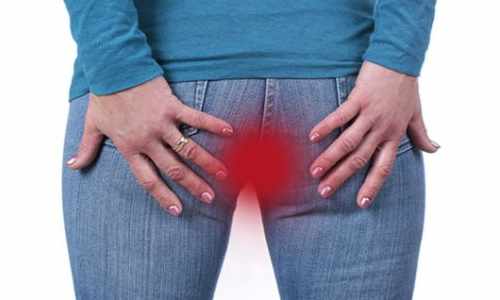FISTULA OVERVIEW
A fistula is a medical problem that happens when an abnormal connection forms between two organs or body parts that aren’t supposed to be connected. This connection creates an opening, or passage, where fluids or substances can flow between them. Fistulas can occur in different parts of the body, such as the digestive tract, urinary system, or reproductive organs. They can be caused by various factors, including infections, injuries, or complications from surgery.
Common types of fistulas include anal fistulas, which are connections between the anus and nearby skin, and vesicovaginal fistulas, which connect the bladder to the vagina. Fistulas can lead to symptoms like pain, infection, and abnormal discharge. Treatment for fistulas often involves surgery to close the abnormal connection and restore normal function. Doctors may also prescribe medications or other therapies to manage symptoms and prevent complications.
SYMPTOMS OF FISTULA
While some Fistulas may be asymptomatic or have mild symptoms initially but, if you experience any persistent or unusual symptoms related to your digestive, urinary, or reproductive systems, it’s advisable to consult with a healthcare professional for a proper evaluation and diagnosis. The symptoms of a fistula can vary depending on its location and the organs involved. Here are some common symptoms associated with different types of fistulas:
Anal Fistula:
- Persistent pain around the anus.
- Swelling and redness near the anus.
- Pus or blood discharge.
- Recurrent anal abscesses.
Vesicovaginal Fistula (between bladder and vagina):
- Involuntary leakage of urine (urinary incontinence).
- Foul-smelling urine.
- Increased frequency of urination.
- Irritation or infection of the vaginal area.
Rectovaginal Fistula (between rectum and vagina):
- Passage of gas or stool from the vagina.
- Foul-smelling discharge from the vagina.
- Recurrent urinary tract infections.
- Discomfort or pain during sexual intercourse.
Enterocutaneous Fistula (connecting the intestine to the skin):
- Leakage of intestinal contents through an opening in the skin.
- Abdominal pain and tenderness.
- Diarrhea.
- Malnutrition and weight loss.
Perianal Fistula (around the anus):
- Pain during bowel movements.
- Swelling or lumps around the anus.
- Pus or blood discharge.
CAUSES OF FISTULA
Fistulas can be caused by various factors, and the specific cause often depends on the type and location of the fistula. Here are common causes associated with different types of fistulas:
Infections:
Infections in the anal or rectal area can lead to the formation of anal fistulas.
Infections in the urinary or reproductive organs may contribute to vesicovaginal or rectovaginal fistulas.
Inflammatory Bowel Diseases (IBD):
Conditions such as Crohn’s disease and ulcerative colitis can cause inflammation and damage to the digestive tract, leading to fistula formation.
Trauma or Injury:
Physical trauma or injury, such as childbirth-related trauma, surgery complications, or accidents, can result in fistulas.
Abscess Formation:
Abscesses, which are pockets of pus, can form in different parts of the body, and if not properly treated, they may lead to the development of fistulas.
Radiation Therapy:
Radiation treatment for cancer, particularly in the pelvic area, can cause tissue damage and increase the risk of fistula formation.
Inflammatory or Infectious Conditions:
Chronic inflammatory conditions, such as diverticulitis, may contribute to the development of fistulas.
Infections in the gastrointestinal or genitourinary systems can lead to fistula formation.
Complications of Surgery:
Surgical procedures, especially those involving the intestines, bladder, or reproductive organs, can sometimes result in fistulas as a complication.
Foreign Bodies:
The presence of foreign bodies in the body, such as swallowed objects or retained surgical materials, can cause irritation and contribute to fistula formation.
PREVENTION OF FISTULA
Preventive measures may vary depending on the type of fistula and individual health circumstances. Consulting with healthcare professionals for personalized advice based on specific health conditions is crucial for effective prevention. Preventing fistulas involves addressing the underlying causes and adopting strategies to minimize the risk of abnormal connections forming between organs. Here are some general measures for preventing fistulas:
Maintain Good Hygiene:
Practice proper hygiene in the anal, genital, and perianal areas to prevent infections that could lead to fistulas.
Manage Inflammatory Conditions:
If diagnosed with inflammatory bowel diseases (IBD) like Crohn’s disease or ulcerative colitis, work closely with healthcare professionals to manage and control these conditions effectively.
Promote Safe Childbirth Practices:
During childbirth, ensuring proper medical care and avoiding prolonged or difficult labor can help reduce the risk of obstetric fistulas.
Follow Surgical Guidelines:
Adhere to surgical guidelines and postoperative care to minimize the risk of complications that could lead to fistula formation.
Avoid Self-Treatment:
Avoid attempting to treat abscesses or infections at home. Seek medical attention for proper diagnosis and treatment.
Practice Safe Sex:
Engage in safe sexual practices to reduce the risk of sexually transmitted infections that could lead to reproductive organ fistulas.
Maintain a Healthy Lifestyle:
Adopt a healthy lifestyle that includes a balanced diet, regular exercise, and avoiding excessive alcohol or tobacco use to promote overall well-being.
Promptly Treat Infections:
Address infections promptly with appropriate medical care to prevent the progression to fistula formation.
Regular Medical Check-ups:
Attend regular medical check-ups, especially if you have pre-existing conditions that may increase the risk of fistulas, such as IBD or chronic infections.
Manage Chronic Conditions:
Effectively manage chronic conditions like diabetes and hypertension, as uncontrolled diseases may contribute to complications that increase the risk of fistulas.
Safe Surgery:
If surgery is necessary, choose qualified healthcare professionals and facilities, and adhere to postoperative care instructions to minimize the risk of surgical complications.
DIAGNOSIS FOR FISTULA
The specific diagnostic approach may vary based on the suspected location and type of fistula. A healthcare professional will determine the most appropriate diagnostic methods based on the individual’s symptoms and medical history. Early and accurate diagnosis is crucial for planning effective treatment and preventing complications.
Diagnosing a fistula involves a thorough medical evaluation and may include:
Medical History:
Discussion with the healthcare provider about symptoms, personal and family medical history, and any previous relevant conditions or surgeries.
Physical Examination:
Examination of the affected area, such as the anus, genital region, or abdomen, to assess for signs of swelling, tenderness, or abnormal discharge.
Imaging Studies:
Utilization of imaging tests like MRI, CT scans, or ultrasound to visualize the internal structures and identify the presence, location, and extent of the fistula.
Endoscopy:
Insertion of a flexible tube with a camera (endoscope) into the affected body part, such as the rectum or bladder, to directly view the area and identify any abnormal connections.
Contrast Studies:
Injection of a contrast dye into the affected area followed by X-rays to highlight the fistula and surrounding structures.
Laboratory Tests:
Blood or other laboratory tests to assess for signs of infection or underlying conditions that may contribute to the development of a fistula.
Colonoscopy or Cystoscopy:
Insertion of a flexible tube with a camera into the colon or bladder to examine the internal lining and identify fistulas.
Pelvic Examination:
Examination of the pelvic region for signs of reproductive organ fistulas, often performed by a gynecologist.
Anoscopy or Proctoscopy:
Examination of the anal canal using a special instrument to assess for anal fistulas.
FISTULA MANAGEMENT THROUGH ALLOPATHY
It’s important for individuals with fistulas to consult with a healthcare professional to determine the most appropriate treatment plan based on the specific type, location, and severity of the fistula, as well as individual health factors. Allopathic treatment aims to manage symptoms, promote healing, and prevent recurrence while considering the overall well-being of the patient. The management of fistula through allopathy, or conventional medicine, involves a combination of medical and surgical approaches. Here are common methods used in allopathic treatment for managing fistulas:
Antibiotics:
If the fistula is associated with an infection, antibiotics may be prescribed to control and eliminate the infection.
Anti-Inflammatory Medications:
Non-steroidal anti-inflammatory drugs (NSAIDs) may be recommended to reduce inflammation and manage pain associated with fistulas.
Drainage of Abscess:
If an abscess is present, drainage may be performed to relieve pressure, reduce symptoms, and promote healing.
Seton Placement:
A seton, a thin piece of material, may be placed through the fistula tract to allow continuous drainage and prevent the formation of abscesses.
Immunosuppressive Medications:
In cases where fistulas are associated with autoimmune conditions like Crohn’s disease, immunosuppressive medications may be prescribed to manage inflammation and control the disease.
Biologics:
Biologic medications, such as infliximab or adalimumab, may be used in the treatment of inflammatory bowel diseases or conditions contributing to fistula development.
Surgical Interventions:
Surgical procedures are often required to treat fistulas, especially if they are complex or recurrent. Surgical options may include:
Fistulotomy: Opening and draining the fistula tract.
Advancement Flap Repair: Using nearby tissue to cover and repair the fistula.
Seton Placement: A seton may be used during surgery to aid in drainage.
Fibrin Glue Injection: Injection of a special glue to seal the fistula tract.
Fistula Plug: Placing a biocompatible plug into the fistula to promote closure.
Follow-up Care:
Regular follow-up visits with healthcare providers are essential to monitor the healing process, address any complications, and adjust treatment as needed.
FISTULA MANAGEMENT THROUGH AYURVEDA
Ayurveda offers holistic approaches to manage Fistulas. Ayurvedic practitioners often provide personalized treatment plans based on the individual’s unique constitution (Prakriti) and the imbalance of doshas. This may involve a combination of dietary, herbal, and lifestyle recommendations. It’s crucial to approach Ayurvedic treatment for fistulas with caution and consult with a qualified Ayurvedic practitioner. Combining Ayurvedic approaches with conventional medical advice, especially in cases requiring surgical intervention, is important for comprehensive care. Ayurvedic treatments should be undertaken under the guidance of qualified practitioners. Ayurvedic management of fistulas may involve the following approaches:
Dietary Recommendations:
Ayurveda often emphasizes the importance of a balanced and nutritious diet. Dietary recommendations may include incorporating easily digestible foods, increasing fiber intake, and avoiding spicy and excessively hot foods.
Herbal Remedies:
Various herbs are used in Ayurveda to address inflammation, promote healing, and support the immune system. Specific herbs like turmeric, neem, and aloe vera may be recommended for their anti-inflammatory and antimicrobial properties.
Ayurvedic Medications:
Ayurvedic formulations, such as Triphala, Guggulu, and Kutki, may be prescribed to help cleanse the digestive system, reduce inflammation, and support overall healing.
Kshar-Sutra Therapy:
This is a specialized Ayurvedic surgical technique that involves the use of medicated threads (Kshara Sutra) to cut and heal the fistula. The thread is changed periodically, promoting gradual healing.
Lifestyle Modifications:
Ayurveda often emphasizes the importance of a balanced lifestyle. Stress management techniques, adequate rest, and regular exercise may be recommended to support overall well-being.
Personalized Treatment Plans:
Ayurvedic practitioners often provide personalized treatment plans based on the individual’s unique constitution (Prakriti) and the imbalance of doshas. This may involve a combination of dietary, herbal, and lifestyle recommendations.
FISTULA MANAGEMENT BY PANCHKARMA
Panchakarma is a set of detoxification procedures in Ayurveda that aims to cleanse the body and restore balance to the doshas (bioenergies). While Panchakarma is not specifically designed for the management of fistulas, it can be a part of an overall Ayurvedic treatment plan for individuals with fistula conditions. It’s important to note that Panchakarma should be carried out under the guidance and supervision of qualified Ayurvedic practitioners. The specific Panchakarma procedures recommended will depend on an individual’s constitution (Prakriti), the nature of the imbalance, and the presence of any associated conditions. While Panchakarma can play a supportive role in Ayurvedic management, comprehensive treatment for fistulas may also include dietary modifications, herbal remedies, lifestyle changes, and specific therapies like Kshara Sutra (medicated threads) or other surgical interventions depending on the severity and type of the fistula. Always consult with qualified healthcare professionals for personalized advice and treatment plans.
Here’s how Panchakarma may be utilized in the context of fistula management:
Vamana (Emesis):
This therapeutic vomiting helps eliminate excess Kapha dosha, which is associated with mucus and congestion. It may be used to address underlying imbalances contributing to the formation of fistulas.
Virechana (Purgation):
Virechana involves the use of purgative substances to eliminate excess Pitta dosha, which is associated with heat and inflammation. It may help in detoxifying the body and addressing inflammatory conditions.
Basti (Enema):
Basti is a central component of Panchakarma and involves the administration of medicated enemas. Herbal decoctions, oils, and other substances may be used in Basti to cleanse the colon, reduce inflammation, and support overall healing. Basti is considered especially beneficial for disorders related to the rectum and digestive system.
FISTULA MANAGEMENT BY DR MONGA MEDI CLINIC
At Dr Monga Medi Clinic, the patients suffering from Fistula get the ideal treatment which often involves an integrative approach, combining Ayurveda and allopathy under the guidance of qualified healthcare professionals.
While our Ayurveda approach of treating Fistula may contribute through dietary and lifestyle modifications, herbal remedies, Kshara Sutra therapy, and Panchakarma procedures, our Allopathic interventions include antibiotics to manage infections, and anti-inflammatory medications.
Our integrative approach aims to provide a holistic and personalized treatment plan, emphasizing open communication and coordination between practitioners to monitor progress and adjust interventions as needed for optimal outcomes.
FREQUENTLY ASKED QUESTIONS
Recurrence is possible, and long-term management involves addressing underlying causes, maintaining good health, and regular monitoring to prevent complications.
Regular follow-up appointments with healthcare providers are essential to monitor the healing process, address complications, and adjust the treatment plan as needed.
In some cases, especially with small and uncomplicated fistulas, non-surgical approaches like antibiotics, proper wound care, and lifestyle modifications may be attempted. However, complex cases often require surgical intervention.
The healing time varies based on the type and severity of the fistula, as well as the chosen treatment. It may take weeks to months, and regular follow-up is crucial to monitor progress.
Yes, untreated fistulas may lead to persistent infections, abscess formation, and complications like anal or urinary incontinence. Seeking prompt medical attention is vital to prevent these issues.
Yes, obstetric fistulas, which result from childbirth injuries, may require specialized care. Surgical interventions, supportive therapies, and rehabilitation are often employed to address these unique cases.
INFORMATIVE ARTICLES

Fissure
FISSURE OVERVIEW An anal fissure is a common condition characterized by small tears or cracks in the lining of the anal canal. Typically caused by factors like straining during bowel

Fistula
FISTULA OVERVIEW A fistula is a medical problem that happens when an abnormal connection forms between two organs or body parts that aren’t supposed to be connected. This connection creates

Constipation
OVERVIEW – CONSTIPATION Constipation is when you have trouble pooping regularly. It means you might not go to the bathroom as often as usual, and when you do, it can











